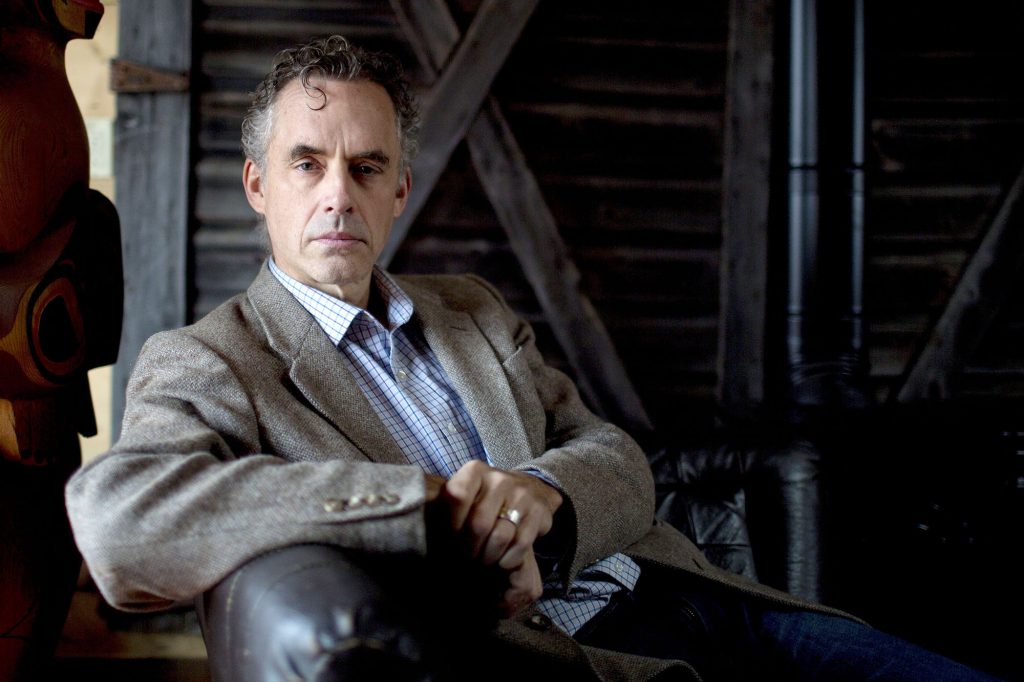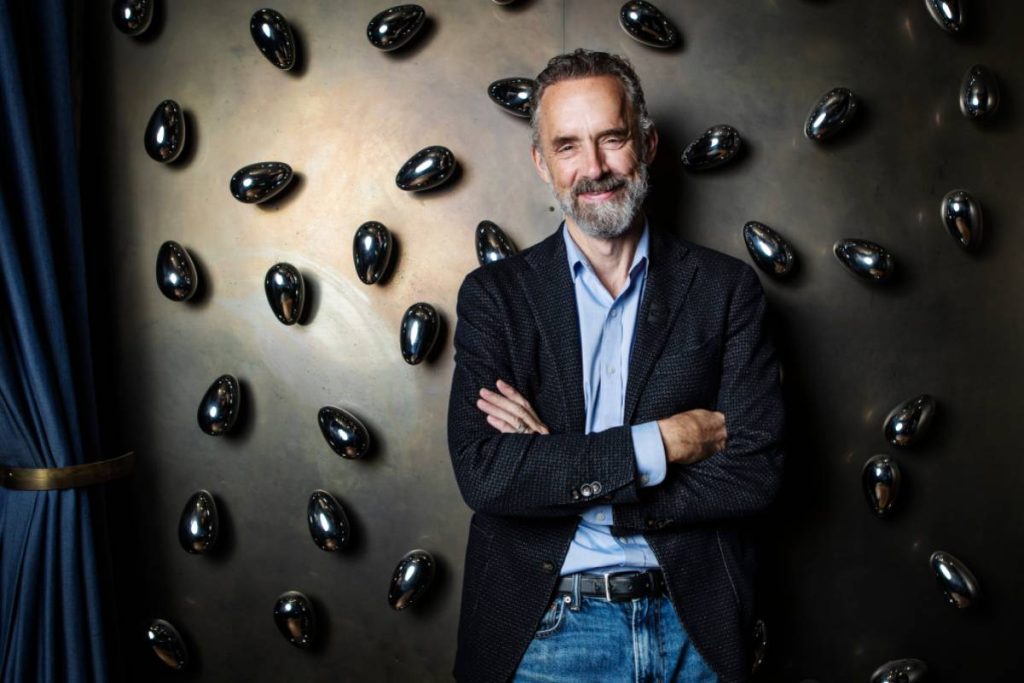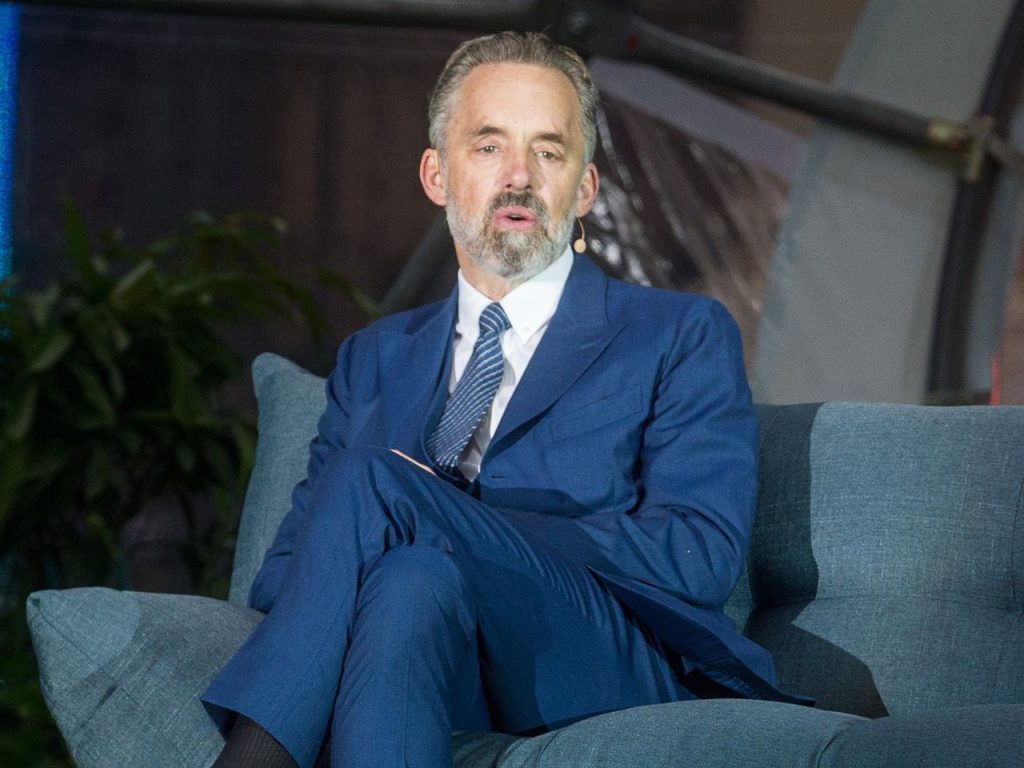Jordan Peterson, a professor of psychology at the University of Toronto in Canada, has been called “the most prominent public intellectual in the Western world.”
He is a proponent of the hero’s journey, a notion developed by Carl Jung in which a seemingly average individual answers a call to adventure and embarks on a perilous trip that ultimately leads to greater self-awareness. (Without a hint of irony, he has portrayed himself as having been “raised and toughened amid the freezing wastelands of Northern Alberta.”) His hard-line philosophy of self-help and bootstrapping has made him popular on the “intellectual dark web” and served as an “entry drug” for many would-be conservatives who stumbled onto one of his lectures on YouTube.
Hence, the news that Peterson had been placed in a medically induced coma for eight days at an unknown clinic in Russia came as something of a shock to his friends and family in early February.
Mikhaila Peterson, a 28-year-old food blogger, recently posted a short but dramatic video in which she and her father, who is physically dependent on the drug clonazepam, are said to have traveled to Russia to seek an unconventional treatment. Peterson’s type of philosophy centers on stoicism, self-reliance, and the triumph of the will over external conditions, hence dependence runs counter to these ideas.
In his best-selling self-help book, 12 Rules for Life, he cautioned his readers to “take responsibility for your own life” since “no one gets away with anything, ever.”

During his medical journey, he came dangerously close to death multiple times, according to Mikhaila. He had spent weeks in intensive care, and now he was on medication to prevent seizures and could neither speak nor write.
Both medical professionals and regular citizens were baffled by the news. The mystery surrounding Peterson’s drug-induced coma in Russia deepens. After a long struggle to wean himself off clonazepam, Peterson ultimately found himself in Russia, as evidenced by interviews with medical specialists and a close reading of numerous statements Mikhaila and Peterson have made on podcasts and social media.
Peterson, who presents himself as a man of science, may have been duped by the promise of a bogus cure, with tragic results.
Conservative media have largely covered the Peterson saga, and in doing so have relied almost entirely on the story told by Mikhaila, a nutrition “influencer” with no medical credentials who claims to have cured her idiopathic juvenile arthritis, clinical depression, and C. difficile infection by eating nothing but meat, salt, and water. Peterson supported and even followed his daughter’s snake oil diet.
He spent nearly a whole year eating almost only steak and salad before telling celebrity podcaster Joe Rogan in July 2018 that his daughter had suggested he try eating nothing but meat, salt, and water for two months. Peterson’s continued adherence to the restrictive diet is unknown.
It wasn’t until September 2019 that Peterson’s family revealed he had checked into a rehab center in upstate New York for treatment of his substance abuse. According to the latest information we have received from Russia, Mikhaila reports that in 2017 his family doctor recommended the benzodiazepine clonazepam to him to treat the anxiety brought on by a “severe autoimmune reaction to food.” After Peterson’s wife’s April 2019 diagnosis of kidney cancer, his doctor allegedly upped his dosage.
Related Articles:
- Rod Stewart Health Update 2023- What Is The Absolute Cause Of His Illness?
- Harlan Crow Net Worth: The Billion-Dollar Success Story Of A Philanthropic Entrepreneur

Peterson apparently didn’t understand he was reliant on clonazepam until the summer of 2019 when he tried to stop taking it cold turkey and experienced excruciating withdrawal symptoms.
Mikhaila has often and strongly asserted that her father’s dependency is entirely the result of physical necessity and not addiction. It can’t be emphasized enough how different the two are. When someone is dependent on a substance, they experience withdrawal symptoms if they try to quit using that substance.
Addiction is defined by the National Institute on Drug Abuse as “continuous use notwithstanding adverse consequences.” Dependence on a drug does not necessarily imply addiction.
The media has speculated that Peterson has an addiction problem without providing any evidence. If Peterson were addicted, he would likely exhibit behaviors such as purchasing drugs illegally, “doctor shopping,” increasing his dosage without consulting a medical professional, and getting into legal trouble as a result of his drug usage.
There is currently no proof that Peterson exhibited any of the “aberrant behaviors” characteristics of an addict. Again, all we have are reports from his daughter, whose family has an economic motive to downplay any claims that the man who built his fame participating in intellectual Spartan cosplay is hopelessly addicted to a tranquilizer.
Mikhaila has joked about how damaging a diagnosis of addiction would be to her father’s successful self-help brand, which teaches followers to overcome their own weaknesses via hard work and self-denial.
As Jordan Peterson checked himself into a U.S. rehab facility, Mikhaila said in a video update, “We decided we should let people know [the facts] before some tabloid finds out and publishes [that] Jordan Peterson,’ self-help expert,’ is on meth or something.”
Yet, as soon as news of Peterson’s first rehab stay broke in 2019, discussions began on Peterson-centric sites regarding whether or not his fans should view him negatively because of his benzodiazepine addiction.

Simply put, he was abusing drugs to dull the sting of reality. You can label it whatever you want, but the facts remain the same,” remarked Reddit user KingLudwigII. Peterson would likely agree that dependency and addiction are medical conditions, not moral failings if you pressed him on the subject. Many of Peterson’s supporters, though, are attracted to him because of his masculine image and his story of overcoming adversity.
In an interview with RT, Russia’s propaganda network geared at an international audience, Mikhaila revealed that Peterson’s health had deteriorated to the point where his family was more concerned about him than his cancer-stricken wife.
Klonopin (clonazepam), Valium (diazepam), and Xanax (alprazolam) are benzodiazepines, a type of sedatives used to treat anxiety, sleeplessness, and epilepsy, and their addiction can be treated with tried-and-true methods. Benzodiazepines, which first appeared on the U.S. market in 1960 as an alternative to barbiturates, are effective in treating anxiety and muscle spasms, among other ailments.
They work best when used intermittently or for shorter periods of time rather than daily. Physical dependence can develop in as little as four weeks. Severe anxiety, agitation, and potentially fatal convulsions are just some of the withdrawal symptoms that a person who is physically dependent on benzodiazepines may experience if they suddenly stop taking the medicines.
An outpatient program to help people go off benzodiazepines was created about a decade ago by Dr. Olivera Bogunovic, medical director of ambulatory services at Boston’s McLean Hospital and assistant professor of psychiatry at Harvard Medical School.
She recalled that prior to then, patients could only undergo inpatient detox for four days at a time due to insurance restrictions. Seizures have occurred in some patients during the four-day detox process.
Modern treatment for benzodiazepine addiction is not a horrible process. Instead of spending months in a hospital bed, the patient has gradually weaned off the medicines under the supervision of family and friends. Every two weeks, doctors strive to reduce a patient’s dosage by 25%. “Up to 80 to 90 percent of patients have successfully completed detox in our clinic,” Bogunovic told me, describing the method’s impressive success rate.
It’s possible that Jordan’s future difficulties can be traced back to at least one failed attempt at cold turkey on his own. “It’s known as the ‘kindling effect,'” Bogunovic said. A poorly executed initial detox increases the difficulty of subsequent detoxes.
In addition to Jordan’s dependence on clonazepam, Mikhaila claims that the drug paradoxically caused him to become exceedingly agitated. (Of course, the opposite effect is intended with a sedative.) Bogunovic estimates that 1-2% of patients experience paradoxical reactions to benzodiazepines.
The medical word for this condition is akathisia. The patient might sway back and forth or wriggle uncontrollably. Extreme akathisia can render a person totally incapacitated.

A picture of a man trapped by his inability to endure either the medication or its withdrawal develops. Mikhaila told RT that her father was searching for a facility where the physicians “aren’t influenced by the pharmaceutical firms” in order to undergo a “cold turkey” detox.
So that’s how a guy who didn’t want medicines got himself flown across the country and put in a coma with them. A case of pneumonia was discovered “upon arrival” in Russia, according to Mikhaila. If that’s the case, his induced coma might not have been due to benzodiazepine withdrawal at all.
A ventilator may be necessary if pneumonia is so severe that it prevents a patient from breathing on their own. Patients in the ICU are frequently highly sedated since relying on a breathing machine is so unpleasant.
The more serious scenario is that Peterson was put into a coma as part of his detox process. Mikhaila said, “an emergency medical benzodiazepine detox, which we could only find in Russia.” Given that this treatment is only available in Russia, the term “medical detox” suggests that drugs were used as part of the program, and the fact that this treatment is only available in Russia suggests that it was not one of the more conventional forms of drug-assisted detox available in North America.
Bogunovic states that although she has heard of medically induced comas being used to treat benzodiazepine withdrawal, this practice is highly unusual and not based on science. She also notes that while sedation detox for opioids is slightly more common, there is little evidence to support its usefulness or safety.
Bogunovic explains that the patient still has withdrawal symptoms upon regaining consciousness. Nevertheless, there are serious dangers associated with relying solely on a ventilator when under sedation: Idleness increases the danger of blood clots, which can lead to strokes, and mechanical ventilation increases the risk of pneumonia.
Peterson may have experienced so severe withdrawal symptoms from stopping “cold turkey” that his physicians were obliged to put him in a coma for his own safety, even if that wasn’t their original intention. Sedation is often necessary when a patient is experiencing severe benzodiazepine withdrawal because they become so agitated that they pose a risk to themselves and the medical staff.
The most terrifying potential adverse effect of abruptly stopping benzo use is the development of seizures. Peterson may have been put into a coma because of the risks associated with inhaling vomit during a seizure.
Even though her father was provided medication by Western doctors, Mikhaila still holds Western medicine responsible for his condition. Peterson supposedly caught pneumonia at a hospital in North America, though she doesn’t elaborate on how she knows this.
By taking her father to a remote clinic with “the guts” to accomplish what Western doctors wouldn’t, Mikhaila is effectively weaving her own “hero’s journey” into his agony. It’s a story that helps boost her reputation as a wellness expert while also deflecting any uncomfortable inquiries into whether or not Peterson was injured by the treatment.
There are no easy answers when it comes to getting better. But that doesn’t mean you should go with the hardest solution just because it seems tough. The lesson to be learned from Peterson’s tragedy is that drug addiction is neither an evil to be vanquished nor a fault to be hidden. It’s an everyday health issue that calls for cold, hard science, not heroics.
Conclusion
Jordan Peterson, a prominent public intellectual known for his self-help philosophy, has recently been in the news due to his medically induced coma in Russia. Peterson’s dependency on the drug clonazepam, which he had been taking to treat anxiety caused by a severe autoimmune reaction to food, has come to light.
There is speculation about whether Peterson’s drug usage constitutes addiction or simply physical dependence, and his daughter, Mikhaila Peterson, has downplayed any claims of addiction, citing medical necessity. The situation raises questions about Peterson’s philosophy of self-reliance and the potential impact of his personal struggles on his public image.
Chakshu Kaur is a talented content writer for Landscape Insight who specializes in writing about celebrity news, net worth, and the latest updates. She enjoys watching web series, which makes her the ideal fit for our entertainment category. You can reach Chakshu at – chakshu.grimbyte@gmail.com or on Our website Contact Us Page.







